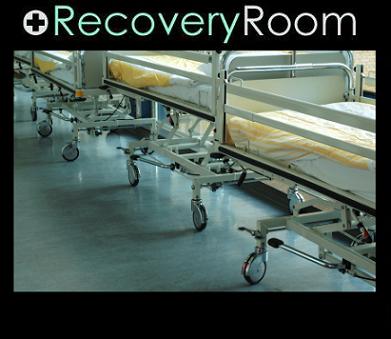
Recovery Room 9/7/11
It has been a while since we have done a Recovery Room post. In these posts we like to highlight events that have happened and we think you should know about.
The Health IT Disparities Workgroup is requesting comments for their Federal Strategic Plan to redue Health IT disparities. Read and summit comments on the Health IT Buzz.
The Federal Health IT Strategic Plan: 2011-2015 (“the Plan”) reflects ONC’s strategy for coordinating with the public and private sector to realize Congress and the Administration’s health IT agenda: improving the quality, efficiency, safety and patient-centeredness of health care. The Plan, which was last published in 2008, has been updated to take into account the rapidly changing landscape of health IT and health IT policy that has been drastically altered over the past two years by two major pieces of legislation that have established an agenda and committed significant resources to health IT – the HITECH Act, passed as part of the American Recovery and Reinvestment Act, and the Patient Protection and Affordable Care Act.
Over the past year, ONC has collaborated with its federal partners, the private sector (through the Health IT Policy Committee) and the public to update the Plan. The Plan serves as an important tool for guiding federal efforts and investments in health IT and EHR adoption over the next five years.
CMS announces the Bundled Payments for Care Improvement Initiative in a press release. The overview taken from the press release:
The Affordable Care Act provides a number of new tools and resources to help improve health care and lower costs for all Americans. Bundling payment for services that patients receive across a single episode of care, such as heart bypass surgery or a hip replacement, is one way to encourage doctors, hospitals and other health care providers to work together to better coordinate care for patients both when they are in the hospital and after they are discharged. Such initiatives can help improve health, improve the quality of care, and lower costs.
The Centers for Medicare & Medicaid Services (CMS) is working in partnership with providers to develop models of bundling payments through the Bundled Payments initiative. On August 23, 2011, CMS invited providers to apply to help test and develop four different models of bundling payments. Through the Bundled Payments initiative, providers have great flexibility in selecting conditions to bundle, developing the health care delivery structure, and determining how payments will be allocated among participating providers.
The Bundled Payments initiative is seeking applications for four broadly defined models of care, three of which would involve a retrospective bundled payment arrangement, with a target price (target payment amount) for a defined episode of care. And the forth model, Retrospective Payment Bundling, makes a single, prospectively determined bundled payment to the hospital that would encompass all services furnished during the inpatient stay by the hospital, physicians and other practitioners. Physicians and other practitioners would submit “no-pay” claims to Medicare and would be paid by the hospital out of the bundled payment.
The Homeland Security Department provided details about its plans to purchase a commercial electronic health record system to support medical care and public health services for aliens it has detained. The current method of recording patient health information is manual or stand-alone systems. DHS anticipates that an electronic health record (EHR), which must be certified for meaningful use by a tester authorized by the Office of the National Coordinator for Health IT, will unify information about medical, dental, mental health and pharmacy services supplied to detainees.
The system will be deployed at 22 locations, including near Los Angeles, Phoenix, and Philadelphia, the department said in an Aug. 20 announcement in Federal Business Opportunities. The contract will run for a total of two years.
On September 2nd HHS announced $11.9 million in grants to implement health information technology in rural areas. Forty rural networks will use the money to support their EHR adoption of certified EHR technology and in turn allow eligible professionals to participate in the CMS EHR incentive program. Read more about the grants and who received them.
